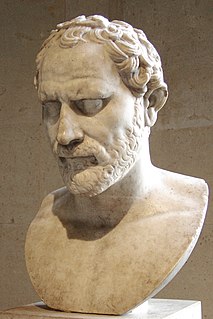A Quote by Noam Chomsky
Anarchists try to identify power structures. They urge those exercising power to justify themselves. This justification does not succeed most of the time.
Related Quotes
The mistakes (of leaders) are amplified by the numbers who follow them without question. Charismatic leaders tend to build up followings, power structures and these power structures tend to be taken over by people who are corruptible. I don't think that the old saw about 'power corrupts and absolute power corrupts absolutely' is accurate: I think power attracts the corruptible.
What is true is that the idea of power corrupts. Power corrupts most rapidly those who believe in it, and it is they who will want it most. Obviously, our democratic system tends to give power to those who hunger for it and gives every opportunity to those who don't want power to avoid getting it. Not a very satisfactory arrangement if power corrupts those who believe in it and want it.
As soon as one identifies, challenges and overcomes illegitimate power, he or she is an anarchist. Most people are anarchists. What they call themselves doesn’t matter to me. The world is full of suffering, distress, violence and catastrophes. Students must decide: does something concern you or not? I say: look around, analyze the problems, ask yourself what you can do and set out on the work!
It is not possible to found a lasting power upon injustice, perjury, and treachery. These may, perhaps, succeed for once, and borrow for awhile, from hope, a gay and flourishing appearance. But time betrays their weakness, and they fall into ruin of themselves. For, as in structures of every kind, the lower parts should have the greatest firmness--so the grounds and principles of actions should be just and true.
The Jesuits are a MILITARY organization, not a religious order. Their chief is a general of an army, not the mere father abbot of a monastery. And the aim of this organization is power - power in its most despotic exercise - absolute power, universal power, power to control the world by the volition of a single man. Jesuitism is the most absolute of despotisms - and at the same time the greatest and most enormous of abuses.
Whether it comes from a despotic sovereign or an elected president, from a murderous general or a beloved leader, I see power as an inhuman and hateful phenomen. To the same degree that I do not understand power, I do understand those who oppose power, who criticize power, who contest power, especially those who rebel against power imposed by brutality.
To try to reform all the power structures at once would leave us with no power structure to use in our project. In any case, we will be able to see that absolute moral renewal could be attempted only by an absolute power and that a tyrannous force such as this must destroy the whole moral life of man, not renew it.
Anarchism as the name for an ideal total social form is a really complicated question. I have never found satisfying answers from anarchists about the definition of the state they are opposed to. Most are opposed to coercive forms of state power. Questions about large scale systems of organization and how they will be funded - those are questions it's hard to get anarchists to give good answers to.





































